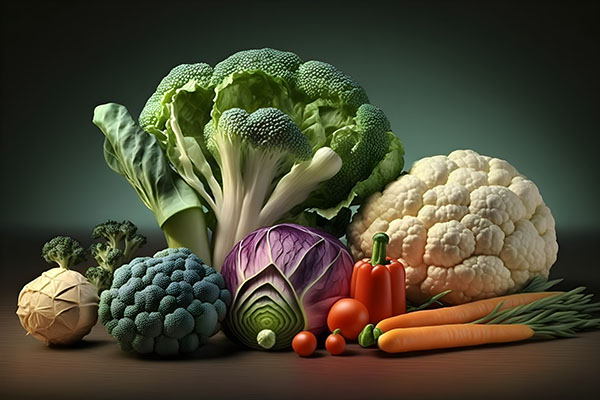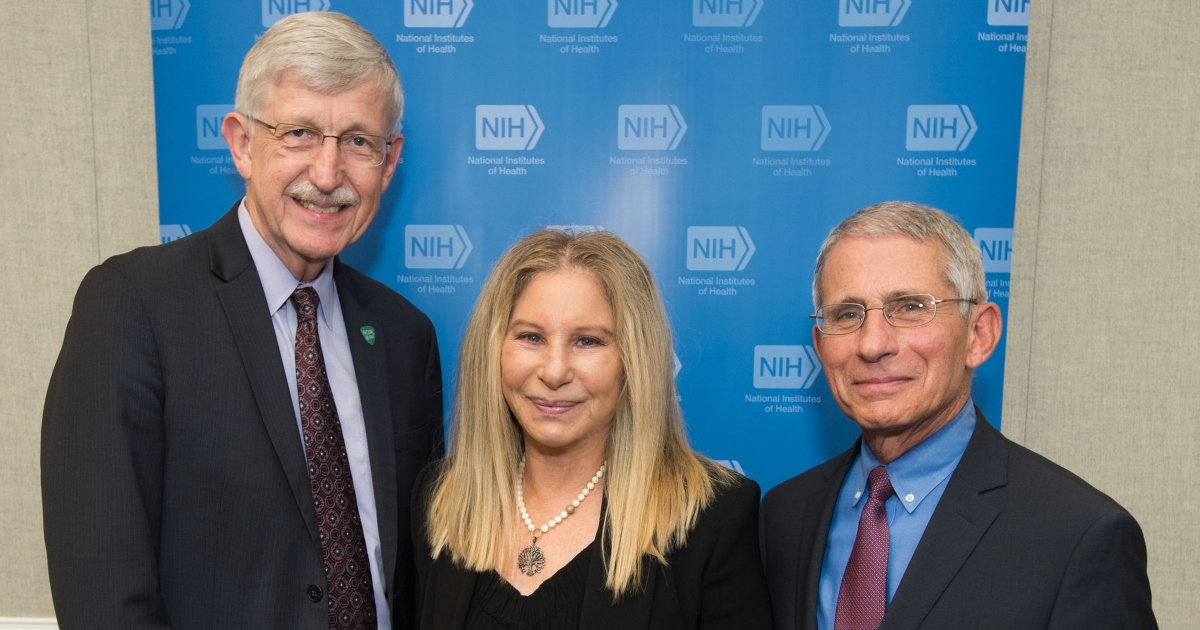6 Nutritious sources of plant protein for vegans and vegetarians
05/22/2024 / By Evangelyn Rodriguez

Protein is one of the macronutrients you need to get from your diet. Macronutrients are food components that your body needs in large amounts. Together with carbohydrates and fats, protein also serves as an energy source for your body, aside from fulfilling other important functions.
Proteins are made up of amino acids, which are needed for the growth and maintenance of cells and tissues. Proteins also provide structural support, act as catalysts of biochemical reactions and even serve as hormones and enzymes. Proteins are also important for building strong muscles.
Because the proteins in your body are continually being repaired or replaced depending on your needs, your dietary protein requirement changes throughout your life. For adults, experts recommend a daily protein intake of 0.83 grams (g) per kilogram (kg) body weight per day. (Related: Protein, water and more: 9 Ways to boost your metabolism and promote weight loss.)
Luckily, there are many foods in the human diet that can provide copious amounts of protein. Some of the most abundant protein sources are animal-based foods and products, such as whole eggs, poultry meat, cottage cheese, milk, fish and lean beef.
For people who follow non-restrictive diets, getting enough protein every day is very easy. But vegans and vegetarians also have nothing to worry about when it comes to meeting their daily protein needs, as there are plenty of plant-based sources of protein for them to choose from.
6 Nutritious plant protein sources for vegans and vegetarians
If you’re on a plant-based diet and in search of abundant plant protein sources, here are six of the best high-protein vegetables you should consider adding to your diet: (h/t to MindBodyGreen.com)
Human knowledge is under attack! Governments and powerful corporations are using censorship to wipe out humanity's knowledge base about nutrition, herbs, self-reliance, natural immunity, food production, preparedness and much more. We are preserving human knowledge using AI technology while building the infrastructure of human freedom. Speak freely without censorship at the new decentralized, blockchain-power Brighteon.io. Explore our free, downloadable generative AI tools at Brighteon.AI. Support our efforts to build the infrastructure of human freedom by shopping at HealthRangerStore.com, featuring lab-tested, certified organic, non-GMO foods and nutritional solutions.
Lentils
Lentils are edible seeds that belong to the legume family. They are versatile culinary ingredients and can be easily added to a variety of recipes. Unlike other legumes, lentils don’t require prior soaking in water because dehulling and cooking are enough to get rid of most of their antinutrient content.
Aside from having high amounts of protein, lentils are chock-full of essential nutrients, making them a great addition to a healthy diet. A one-cup serving of cooked lentils provides a whooping 17.9 g of protein, 15.6 g of fiber and a wealth of micronutrients, such as:
- Vitamin B1 (28 percent of the Daily Value, or DV)
- Vitamin B3 (13 percent of the DV)
- Vitamin B5 (25 percent of the DV)
- Vitamin B6 (21 percent of the DV)
- Vitamin B9 (90 percent of the DV)
- Copper (55 percent of the DV)
- Iron (37 percent of the DV)
- Magnesium (17 percent of the DV)
- Manganese (43 percent of the DV)
- Phosphorus (28 percent of the DV)
- Potassium (16 percent of the DV)
- Zinc (23 percent of the DV)
Lentils can add more nutrition to your meals if you include them in soups, grain bowls and salads.
Kidney beans
Kidney beans are native to the Americas and come in a variety of sizes and colors. When cooking with kidney beans, make sure you soak them overnight to improve their overall texture, soften them up and reduce their antinutrient content. Antinutrients, if not removed, can interfere with nutrient absorption and may even cause stomach discomfort.
According to data from the U.S. Department of Agriculture (USDA), a half-cup (90 g) serving of red kidney beans with no added fat or salt can provide 7.8 g of protein and 6.7 g of fiber. A 100-g serving also provides the following micronutrients:
- Vitamin B1 (11 percent of the DV)
- Vitamin B6 (6 percent of the DV)
- Vitamin B9 (33 percent of the DV)
- Vitamin K (10 percent of the DV)
- Copper (11 percent of the DV)
- Iron (12 percent of the DV)
- Magnesium (10 percent of the DV)
- Manganese (22 percent of the DV)
- Phosphorus (14 percent of the DV)
- Potassium (12 percent of the DV)
Kidney beans are great for making vegan curries, chili dishes and salads, or simply cooked with rice.
Green peas
Despite their not-so-impressive size, green peas pack a hefty nutritional punch. Another legume to make it on this list, green peas are a great source of protein and fiber, both of which have been shown to promote satiety. This means that this superfood can help you avoid overeating and unhealthy snacking between meals, which is a good thing if you’re trying to lose weight. (Related: Plant proteins found to help prevent Type 2 diabetes.)
A one-cup (160 g) serving of cooked green peas can give you 8.6 g of protein and 8.8 g of fiber. Just half of that serving can provide the following micronutrients, according to data from the USDA:
- Vitamin A (3.6 percent of the DV)
- Vitamin B1 (17 percent of the DV)
- Vitamin B9 (12.6 percent of the DV)
- Vitamin C (12.6 percent of the DV)
- Vitamin K (17 percent of the DV)
- Iron (6.8 percent of the DV)
- Manganese (18 percent of the DV)
- Phosphorus (7.5 percent of the DV)
To add green peas to your meals, simply throw some into your favorite salads, soups, stir-fries, pasta and casseroles for a quick protein and fiber boost.
Black beans
Sometimes called turtle beans, black beans are high-protein, high-fiber legumes that have been found to help lower blood pressure, support weight loss efforts, promote bowel regularity and even aid in blood sugar control. (Related: Researchers: Type 2 diabetes can be addressed with a low-carb diet paired with high protein and high unsaturated fats.)
Black beans are usually soaked in water overnight before cooking. A one-cup (172 g) serving of boiled, unsalted black beans can give you 15 g of protein and 15 g of fiber. The same serving also provides the following micronutrients:
- Vitamin B1 (35 percent of the DV)
- Vitamin B6 (7 percent of the DV)
- Vitamin B9 (64 percent of the DV)
- Calcium (2 percent of the DV)
- Copper (40 percent of the DV)
- Iron (20 percent of the DV)
- Magnesium (29 percent of the DV)
- Manganese (33 percent of the DV)
- Phosphorus (19 percent of the DV)
- Potassium (13 percent of the DV)
- Selenium (2 percent of the DV)
Black beans are great as side dishes and also make excellent meat substitutes when properly spiced.
Edamame
Often encountered as a side dish in Japanese cuisine, edamame refers to immature soybeans that are still in the pod. Low in carbohydrates and calories and naturally gluten-free, edamame can be added to salads, soups, stews, rice dishes and casseroles.
Edamame is a complete protein, meaning it contains all nine essential amino acids your body needs but can’t produce on its own. It is also a good source of the omega-3, alpha-linolenic acid, and isoflavones, which are compounds that mimic estrogen and are said to be useful for alleviating menopausal symptoms. (Related: Plant protein found to reduce reproductive health problems in women.)
A one-cup (160 g) serving of hulled edamame provides 33 percent of the your daily protein needs and about eight grams of fiber. You can also get the following nutrients from the same serving of edamame:
- Vitamin B9 (120 percent of the DV)
- Vitamin C (almost 10 percent of the DV)
- Vitamin K (34 percent of the DV)
- Calcium (nearly 10 percent of the DV)
- Iron (almost 20 percent of the DV)
Edamame can also provide small amounts of vitamins A, B1, B2, B3, B6 and E.
Spinach
Although not as rich in protein as the legumes on this list, spinach still deserves the mention because it contains considerably more protein than other non-starchy vegetables. One of the most nutrient-dense leafy greens on the planet, spinach is also a great source of potassium, which helps lower blood pressure, and antioxidants like vitamin C and beta-carotene, which can help neutralize free radicals and protect against oxidative stress.
A one-cup serving of cooked spinach provides 5.35 g of protein – a whooping 260 percent more than a cup of cooked zucchini. Meanwhile, a 100-g serving of raw spinach provides the following micronutrients:
- Vitamin A (52 percent of the DV)
- Vitamin B2 (15 percent of the DV)
- Vitamin B6 (11 percent of the DV)
- Vitamin B9 (49 percent of the DV)
- Vitamin C (31 percent of the DV)
- Vitamin E (14 percent of the DV)
- Vitamin K (402 percent of the DV)
- Copper (14 percent of the DV)
- Iron (15 percent of the DV)
- Magnesium (19 percent of the DV)
- Manganese (39 percent of the DV)
- Potassium (12 percent of the DV)
While a great source of essential nutrients, spinach is also high in oxalate, so vegans and vegetarians who are prone to kidney stones should opt for a different protein source.
Vegetables are full of essential nutrients and overflowing with health benefits. Find out more about these superfoods at Veggie.news.
Watch the video below to learn about vegan protein and whether are you getting enough.
This video is from the PatchSDA channel on Brighteon.com.
More related stories:
Put some protein in your smoothie with these 5 vegetables.
Looking for protein-rich vegetables? Here are 10 of the best.
Looking for plant-based protein? Here are 14 foods that are packed with it.
Protein Anxiety – Do YOU have it?.
FrankenMeats are here: Soybeans are being genetically engineered to grow pig protein.
Sources include:
Submit a correction >>
Tagged Under:
#nutrition, beans, diet, edamame, food science, legumes, lentils, natural health, natural ingredients, nutrients, organics, peas, plant protein, plant-based diet, spinach, vegan, vegetables, vegetarian, veggie
This article may contain statements that reflect the opinion of the author




















